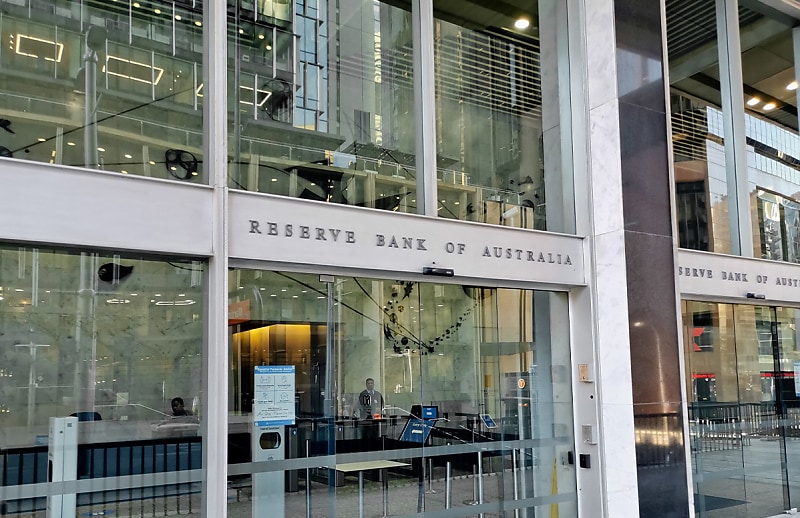RBA's decision to keep rates on hold 'commendable' says BDO
BusinessThe Reserve Bank's decision to hold its ground on interest rates is a sensible economic move with political pressure to make a cut mounting.

As widely predicted by economists and expert commentators, the Reserve Bank of Australia left the cash rate target unchanged at 4.35 per cent following its board meeting yesterday.
BDO economics partner Anders Magnusson said the RBA's decision to hold its ground was commendable in the face of political pressure and the massive rate cut by the U.S.
"The current political rhetoric reinforces the importance of storytelling in economics to focus on what really matters," said Magnusson.
The pressure on the RBA to cut follows predictions of headline inflation re-entering the target range of 2 to 3 per cent in August.
"If we do see that, the full story will likely be that this resulted from temporary effects of the first quarterly instalment of the $300 energy rebate from the federal government and low petrol prices backed by three-year low oil prices," said Magnusson.
"Underlying inflation will likely remain high and sticky once you exclude petrol prices, electricity, and items subject to seasonality, such as vegetables and travel."
Magnusson said while some mortgage payers were having a tough time, an over-sensitive policy of lowering interest rates too early can worsen the cost-of-living squeeze by bringing back inflation.
"The ‘narrow path’, which the previous RBA governor imagined and the current governor is paving, has led the economy to gain from a strong labour market," he said.
Magnusson said the RBA will lower interest rates at the opportune moment as it tries to juggle the competing forces from government consumption and investment.
"I think the focus in response to a weak economy should instead be on ‘growing the pie’ by boosting productivity. We should turn the public discourse to increasing productivity and initiate difficult conversations around the existing tax system, which the Productivity Commission can contribute to well," he said.
"I hope and believe that the RBA will continue with its balanced approach, until it is economically appropriate to cut interest rates. It wouldn’t be appropriate to do so while strong government spending continues to stimulate demand in the economy."
RSM Australia Economist Devika Shivadekar said the RBA was left with little choice than to maintain its current stance given the persistently tight labour market and core inflation remaining uncomfortably high.
“The RBA seems to favour making its moves late in the game,” Shivadekar said.
“It was one of the last central banks to start hiking rates post-pandemic, and now appears likely to be among the last to begin easing.
“While the RBA will continue to monitor global trends, particularly the actions of the US Federal Reserve, it's clear Australia is not moving in lockstep.
The comments from the RBA indicate the central bank has shifted its focus from headline inflation to core inflation, which remains stubbornly high much to the RBA’s frustration, said Shivadekar.
Shivadekar said the most recent labour market and GDP data points towards the need for the RBA to watch and wait to see how the economy responds over the coming weeks and months.
“On the labour market front, there appears to be a disconnect between declining hiring intentions and robust employment growth figures," Shivadekar said.
“The sharp rise in part-time jobs last month likely reflects the seasonal influx of students starting university in the July/August term, a trend that may taper off in the final quarter of the year, potentially nudging the unemployment rate higher.
“We believe the policymakers are aptly concerned about the evident weakness in economic growth and mindful of the downside risk this poses to their policy decision while being acutely aware of the next data prints likely showing improved economic performance as the fiscal spending outlined in the Federal Budget gains traction.
Mortgage Choice chief executive Anthony Waldron agreed that the latest data makes the case for the Reserve Bank to keep the cash rate on hold.
“ABS data showed that inflation is trending down, and the seasonally adjusted unemployment rate rose slightly in July,” said Waldron.
“Data also points to interest rates affecting the economy as intended, with the ABS Australian National Accounts showing that outside of the pandemic, the economy recorded the slowest annual financial year economic growth since FY92.”
AMP chief economist Shane Oliver similarly predicts the first rate cut will likely happen in February.
“Short of substantially higher unemployment, lower underlying inflation or a financial shock the RBA is likely to remain on hold in the next few months as it still sees too much excess demand and inflation,” said Oliver.
“But easing demand, employment and inflation are likely to drive rate cuts from February.”
Macquarie University professor of economics Jeffrey Sheen said the RBA may need to make the next rate cut before next year.
“Almost all other major central banks have begun easing their monetary policy. We cannot afford the resulting strong exchange rate at this stage,” said Sheen.
“The weakness in Australia’s exports to China means our luck has run out. Business investment and consumption are already feeble.”
Sheen said that by November, he expects to see “the portents of a severe recession in 2025 which will compel the RBA to walk back its anti-inflation commentary and begin cutting the cash rate”.
“If they don’t, they risk damaging the economy as well as their hard-earned reputation as effective macroeconomic managers,” he said.




